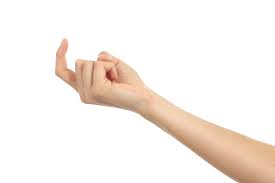记忆方法
1. derived from beacon.
2. beckon是由beacon变体而来。因此含义具有很强的关联性。
3. 这两个词如何区分:由于先有beacon, 后有beckon, 很显然先要有信号灯、烽火,然后才能通过信号灯、烽火去召唤、示意、吸引,或者说才能通过信号灯、烽火去引申为召唤、示意、吸引,这就是基于词源信息区分两词及其含义。
2. beckon是由beacon变体而来。因此含义具有很强的关联性。
3. 这两个词如何区分:由于先有beacon, 后有beckon, 很显然先要有信号灯、烽火,然后才能通过信号灯、烽火去召唤、示意、吸引,或者说才能通过信号灯、烽火去引申为召唤、示意、吸引,这就是基于词源信息区分两词及其含义。
中文词源
beckon 招手示意
词源同beacon, 灯塔。原指发光,吸引。
英语词源
- beckon
-
beckon: see beacon
- beckon (v.)
- Old English gebecnian (West Saxon beacnian) "to make a mute sign," derivative of beacen "a sign, beacon," from Proto-Germanic *bauknjan (cognates: Old Saxon boknian, Old High German bouhnen), from PIE root *bha- (1) "to shine" (see beacon). Related: Beckoned; beckoning. The noun is attested from 1718, from the verb.
权威例句
- 1. Seen from afar, its towering buildings beckon the visitor in.
- 从远处看,它高耸的大楼召唤着拜访者进去。
- 2. The bright lights of Hollywood beckon many.
- 好莱坞的花花世界吸引了很多人。
- 3. All the attractions of the peninsula beckon.
- 半岛上的各处景点无不令人心驰神往。
- 4. She crooked her finger to beckon him.
- 她勾勾手指向他示意.
- 5. Kate turned to beckon Peter across from the car, but Bill waved him back, meanwhile pushing Kate inside.
- 凯特转身示意汽车对面的彼得过来,可是比尔却挥手示意他回去,同时把凯特推进车内。

